Contents
Rotary screw compressors are air compressors that use two screws to compress the air. They are often used in industrial and commercial settings because they are reliable and can produce large amounts of compressed air.
Compressed air is often used in industrial and commercial settings to power tools and equipment. When the compressed air is moisture-rich, it can cause several problems. For example, moist air can corrode metal parts, damaged electrical equipment, and cause rusting. In addition, humid air can cause products to deteriorate faster and lead to bacteria and mold formation.
Effects Of moisture in causing damage
Effects Of moisture in causing damage
Increased Risk of rust:
The high amount of moisture in the air can cause metal parts to corrode faster than expected. It can also lead to rusting on piping and other structures in industrial and commercial settings.
Increased risk of bacterial growth:
Moisture-rich air is perfect for bacteria, mold, mildew, algae, fungus, etc., to survive. When this moist air spreads throughout industrial and commercial settings, it can cause many issues.
For example, it increases the likelihood that containers with chemicals will leak or shatter during transportation because moisture weakens individual glass containers by expanding the molecules in the glass. It also increases the likeliness that bacteria will grow in food products when they are not adequately dried before shipping them.
Increased Corrosion:
Moisture in the air is a drying agent. It can pull moisture out of metal parts and cause them to corrode much faster than they usually would. Not only does this decrease the life expectancy of the metal parts, but it also increases the need for maintenance. Moisture-rich air can also corrode piping and other structures in industrial and commercial settings when it spreads throughout these areas.
Damage to Pneumatic Control Systems:
Moisture in the air can damage pneumatic systems used to control equipment. Water can cause some pneumatic systems components, such as valves and filters, to rust or deteriorate faster than average.
Increase Likeliness Of Condensation:
Moisture-rich air increases the likeliness of condensation. When moist air hits a cold surface, it makes it easier to become saturated with water. For example, suppose clean compressed air enters an area cooled down by an industrial refrigeration system.
In that case, there is a greater chance that this air will become moisture-rich during cooling-down periods because it has more time to pick up water from its surroundings.
Damage to Valve Systems and Cylinder:
The high moisture content in the air can cause certain types of valves, such as check valves and rubber or urethane-based oil seals, to deteriorate. In addition, moisture can also harm pneumatic cylinder O rings and other components used with cylinders.
Damages the Quality of Finished Products:
The moisture in compressed air can cause issues that can damage the quality of finished products. For example, if moisture-rich air is used to process food products, this air will contain high levels of water vapor. If these shelf-stable products are not appropriately dried before they are packed and shipped, then there is a greater chance that they will become inedible.
There is also a chance that this moist air can corrode metal parts inside packaging machines, leading to rusting on the finished products.
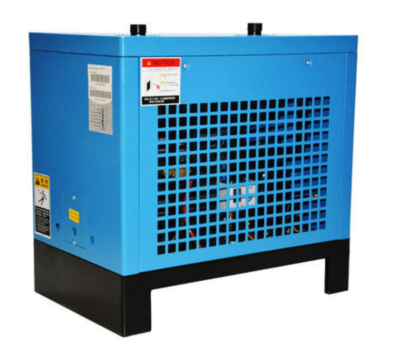
Why Can Rotary Screw Compressors Create Moist Air?
Why Can Rotary Screw Compressors Create Moist Air?
Rotary screw compressors are very popular because they offer some benefits over rotary vane compressors, including better energy efficiency and greater compressing capacities.
However, one downside to using rotary screw compressors is creating moisture-rich compressed air. This moist air can cause many problems in industrial and commercial settings, so it’s essential to take steps to keep the compact air moisture-free.
How Can You Keep Compressed Air Moisture Free?
How Can You Keep Compressed Air Moisture Free?
There are a few ways to keep compressed air moisture-free in industrial and commercial settings.
Desiccant dryer:
A desiccant dryer uses silica gel to absorb the moisture from compressed air. This can help lower the relative humidity of the air and prevent corrosion, bacteria growth, and other problems associated with moist air.
Adsorption dryer:
Another way to keep compressed air moisture-free is by using an adsorption dryer. This type of dryer uses material like activated carbon to remove moisture from the air. Not only does this keep compressed air moist free, but it can also lower noise levels because there is less moisture in the gas.
Compressed Air Drying Station:
A third option for keeping compressed air moist-free is using a compact air drying station. A standard close-air drying station will use a desiccant dryer or an adsorption dryer depending on what chemicals are present in the compressed air supply and other factors that affect performance.
You should consult with your industrial or commercial equipment supplier about what kind of drying station would work best for your needs before you purchase one so that you know you’re getting exactly what you need.
Membrane Drying:
A fourth option for keeping compressed air moisture-free is by using membrane drying. Membrane dryers use a thin film to remove the water from the compressed air. This can be a good option for businesses that have high-moisture compressed air because it can effectively remove more than 95 percent of the water in the air.
Importance of removing moisture
Importance of removing moisture
- It helps prevent the equipment from rusting and keeps the compressed air systems running smoothly.
- It can also help extend the equipment’s life by preventing rust and other forms of corrosion.
- It can prevent bacteria growth because moist air is a breeding ground for bacteria.
- Reduce Operating Costs:
- Reduce maintenance costs by reducing the need for maintenance.
- Prevent unexpected downtime caused by equipment failure because moisture-rich compressed air can cause components to fail.
- The equipment will run more efficiently and will be better protected against corrosion when operating at lower humidity levels.
Moist air is not an issue with dry air. Stay away from moist compressed air, and your machinery will last longer. To help prevent moisture-rich compressed air, you need to choose the right type of equipment and regularly check for moisture during operation. These simple steps can go a long way towards keeping your industrial and commercial operations running smoothly.


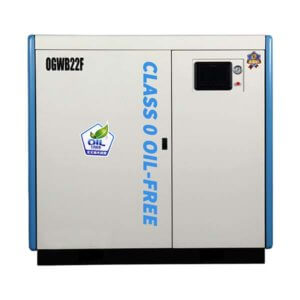
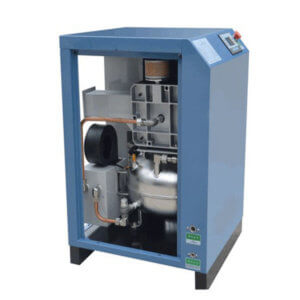
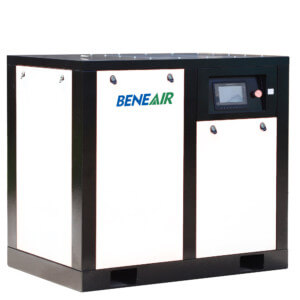
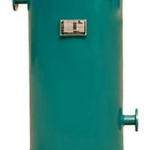
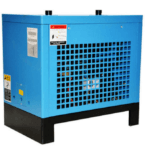
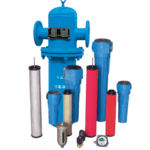




Leave A Comment